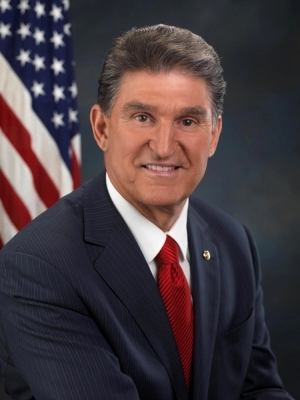Elections | Adobe Stock
Elections | Adobe Stock
The Senate version of the John Lewis Voting Rights Advancement Act, Senate Bill 4, faces the same impasse on the floor as earlier versions of the Democrats’ other sweeping election initiatives, which is moderate Sen. Joe Manchin (D-WV) – the only Senate Democrat who has not signed on as co-sponsor of the bill.
Manchin likewise opposed the so-called For the Peoples Act, House Resolution 1 and Senate Bill 1. And he opposed the House version of the John Lewis voting rights legislation, House Resolution 4, for the same reason.
A memo from the ranking member of the House Administration committee, Rep. Rodney Davis (R-IL), outlines where HR 4 (passed by the House in August) diverges from Manchin's requested compromises. Specifically, Manchin wants the bill to include provisions requiring voter ID, less authority for the attorney general over elections, and objective measures determining voter discrimination.

Sen. Joe Manchin
Sen. Patrick Leahy (D-VT) introduced S.4 earlier this week; it was the subject of a Judicial Committee hearing Wednesday.
Testifying before the committee, Ken Cuccinelli, former Republican Virginia attorney general and currently national chairman of the Election Transparency Initiative, said that the legislation was not a voting rights bill but a “power grab” by Democrats.
He said S.4, and the For the People Act, would give “rabid left-wing lawyers” in the Department of Justice the power to undermine state elections laws using “no objective standards.”
Separately, Tom Spencer, vice president of the Lawyers Democracy Fund, an elections integrity advocacy group, said that the John Lewis voting act, would “dramatically increase the power of Washington’s bureaucrats to vitiate state voting laws and procedures. Rather than protecting the voting rights of all citizens, this rushed, ill-conceived law promotes the political interests of those who believe that the Supreme Court’s decisions on state voting laws should be overturned."
In a 2013 ruling in Shelby County v. Holder, the high court determined that the preclearance standards in the decades-old Voting Rights Act were outdated. The standards were used to ensure that states don’t enact poll taxes, literacy tests and other obstacles to voting.
Spencer said that the case “had become a partisan blunt instrument. Moderate members of Congress, including Democratic Sen. Joe Manchin of West Virginia, expressed concerns with the 2019 version of H.R. 4 and offered reasonable changes to ensure the new coverage formula would be non-partisan, objective, survive constitutional scrutiny, and not offend federalism principles.”
In his testimony, Cuccinelli cited Census Bureau data showing that with the removal of the restrictions targeting minority voters, “Black adults in the South began to engage in elections at rates that quickly approached the rest of the country, actually surpassing black voters in the rest of the country by 1992.”
In the other case, Brnovich v. Democratic National Committee, the Supreme Court ruled earlier this year that Arizona election rules that restrict who can engage in ballot harvesting (third party collection of mail ballots) and ban the counting of provisional ballots cast at the wrong precinct on Election Day did not violate Section 2 of the Voting Rights Act. Section 2 prohibits voting practices or procedures that discriminate on the basis of race, color, or membership in one of the language minority groups identified in Section 4(f)(2) of the act.
Cuccinelli told the Senate panel that the ruling did not overturn Section 2 as some Democrats have argued.
In the (Arizona attorney general) Mark Brnovich case, “the Supreme Court further noted that Section 2 of the Voting Rights Act is alive and well and available to the federal government to use to attack actual instances of discrimination – as it should be,” he said. “I mention this because I am concerned that many leaders on the left talk about the Shelby County decision as if the federal government’s authority to stop discrimination was held unconstitutional, which I hope everyone on this committee knows is not the case.”






 Alerts Sign-up
Alerts Sign-up